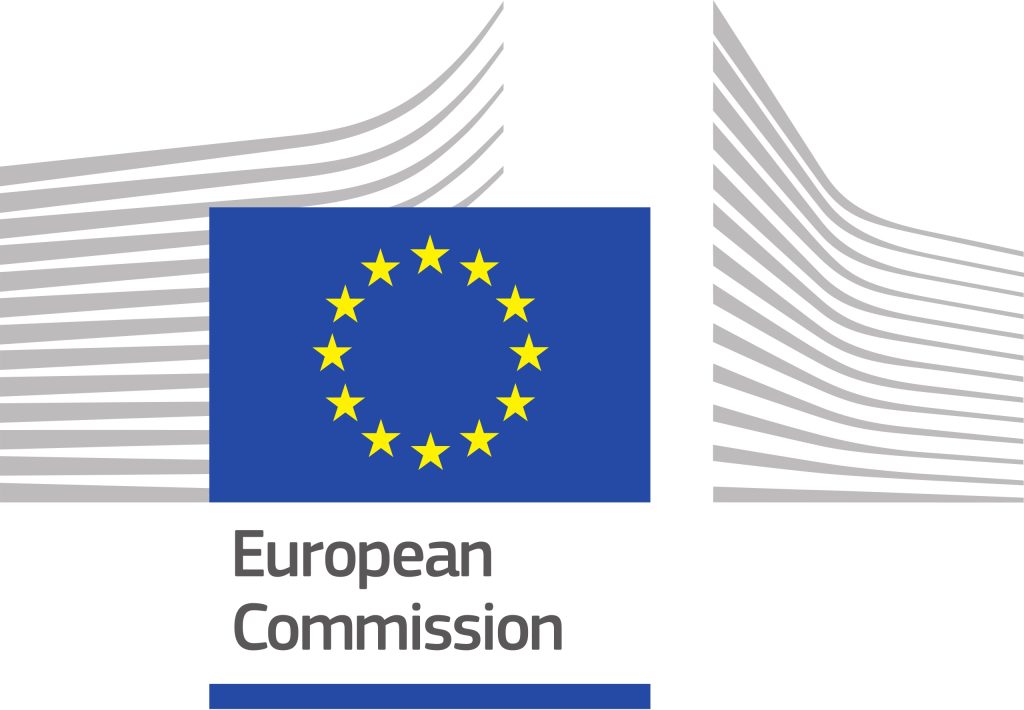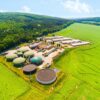
Hydrogen production and integration in energy-intensive or specialty chemical industries in a circular approach to maximise total process efficiency and substance utilisation
Expected Outcome:
Energy Intensive and Specialty Chemical Industries consumes about a quarter of energy in Europe and significantly emits GHG. Most processes are powered with fossil fuels, and the role that clean hydrogen can play in decarbonising these sectors is widely recognised, together with circularity and efficiency through demand-side management and digitisation, as per illustrated in the Masterplan for a Competitive Transformation of EU EIIs. Early demonstrators, acting as de-risking initiatives, can pave the way towards industrial-scale demonstrations, where the impact in terms of GHG emission reduction is massive. It is a key opportunity to generate highly qualified jobs as well while addressing the ambitious targets set by the European Commission in its EU H2 strategy and REPowerEU plan.
This topic focuses on the production of clean hydrogen and its integration into those industries, within a circular approach. The long-term target (proposals should contribute to it) is to ensure continuous supply of clean hydrogen to those industries, at competitive costs compared to incumbent technologies. It is open to any production technology, and even combination of production technologies, as long as they operate from renewable input. This topic is suitable, but not limited to, a further expansion of a successful smaller project, a demonstration into a sector not yet covered by on-going initiatives, or an innovative demonstration of clean hydrogen production technology (or combination of technologies). Proposals should build on and avoid overlaps with past and on-going projects supported by the Clean Hydrogen Partnership and its predecessor the FCH2-JU, the Processes4Planet (P4P) partnership and the Innovation Fund.
Project results are expected to contribute to all of the following expected outcomes:
- Contribution to the ambitious targets set by the European Commission within REpowerEU;
- Contribution to initiatives launched by the European Commission pertaining to industries, decarbonisation, circularity, sustainability, and energy efficiency;
- Contribution to viable business cases for the clean hydrogen produced and integration of by-products from hydrogen production and/or transformation of waste into feedstock within those industries;
- An outline of a continuation plan for greater expansion, ultimately linked to a viable business case placing industrial circularity at the heart of the concept;
- Potential for integration into a hydrogen valley;
- High visibility and dissemination of lessons learnt;
- Development of skills and creation/conversion of jobs.
The topic is open to any renewable hydrogen production route. Accordingly, projects are expected to address the following objectives and related KPIs:
- the KPIs should be in line with the 2030 KPIs stated in the Clean Hydrogen JU SRIA for the relevant technologies. It could be necessary to include additional KPIs according to the renewable hydrogen production route/s addressed.
Scope:
The scope of this topic is to demonstrate the integration of clean hydrogen production and supply to Energy Intensive and/or Specialty Chemical Industries for any combined applications (e.g. feedstock, heat and power generation, amalgamation with CO2, CO or N2 to generate synthetic fuels or hydrogen carriers, etc.) within a prism where circularity and sustainability are central, thereby considering transformation of waste into feedstock and/or capture and integration of any by-products from hydrogen production.
Proposals should cover the following aspects:
- Full-scale demonstration of one or more renewable hydrogen production technologies [As defined in the SRIA of the Clean Hydrogen JU, clean hydrogen refers to renewable hydrogen],[Renewable hydrogen is hydrogen produced using renewable energy (Renewable Energy Directive 2018/2001/EU)] ;
- A supply of clean hydrogen (from technologies that will have been integrated within the scope of this topic and in line with relevant regulations’ thresholds) in the range of at minimum 100 kg/h, over a minimum of 2 years of operations or 5000 cumulative working hours; Operational KPIs like availability and quantity of hydrogen integrated into the process should be included in the proposal;
- Implementation of comprehensive energy management system covering inputs, processes, and outputs;
- The development and validation of a comprehensive Energy Management System (including electrical energy and substances) as an optimisation tool capable of blending industry demand-side management with the maximisation of economic benefit and lifespan of hydrogen production technology, utilising advanced control methodologies like predictive approaches and real-time optimisation; related KPIs like optimization of renewable energy usage, reduction of H2 production cost by optimized energy management, reduction of CO2 footprint of H2/O2 and following products could be added;
- In addition to the hydrogen produced, transformation of at least one by-product into a feedstock and/or integration of at least one by-product from hydrogen production;
- Demonstration of the enhancements achieved in the hydrogen production and in the total process efficiency through techno-economic and life-cycle assessment, underlining the socio-economic and environmental benefits of the proposed circular approach, with attention to water management.
- Analyse and incorporate best practices on holistic sustainability from other sectors
Proposals should demonstrate how the circularity approach (e.g. use of by-products, transformation of a waste into a feedstock) is tackled, together with sustainability aspects such as, but not limited to, water management. The use of artificial intelligence and any other digital tools aiming at increasing safety and optimisation of operations is encouraged. Performance should be measured mainly against energy savings and GHG emission avoidance.
Costs for the development and integration of clean hydrogen technologies allowing supply of hydrogen/oxygen/by-products/ etc to the industries targeted are in the scope of the topic and may be funded. Any upstream (such as renewable energy technologies) or downstream processes (such as production of e-fuels, ammonia, chemicals) are in the scope of the topic within the circularity approach but will not be funded. For the downstream processes applicants are encouraged to seek synergies with the Processes4Planet (P4Planet) Partnership or other programmes.
Proposals should provide a preliminary draft on ‘hydrogen safety planning and management’ at the project level, which will be further updated during project implementation.
The costs for the construction and commissioning phase of the hydrogen production technology/ies maybe funded while costs related to the operation of the hydrogen production plant (e.g., electricity for electrolysers) will not be funded.
This topic is expected to contribute to EU competitiveness and industrial leadership by supporting a European value chain for hydrogen and fuel cell systems and components.
It is expected that Guarantees of origin (GOs) will be used to prove the renewable character of the hydrogen that is produced. In this respect consortium may seek out the issuance and subsequent cancellation of GOs from the relevant Member State issuing body and if that is not yet available the consortium may proceed with the issuance and cancellation of non-governmental certificates (e.g CertifHy).
For activities developing test protocols and procedures for the performance and durability assessment of electrolysers and fuel cell components proposals should foresee a collaboration mechanism with JRC (see section 2.2.4.3 "Collaboration with JRC"), in order to support EU-wide harmonisation. Test activities should adopt the already published EU harmonised testing protocols to benchmark performance and quantify progress at programme level.
For additional elements applicable to all topics please refer to section 2.2.3.2.
Activities are expected to start at TRL 5 and achieve TRL 7 by the end of the project - see General Annex B.
At least one partner in the consortium must be a member of either Hydrogen Europe or Hydrogen Europe Research.
The maximum Clean Hydrogen JU contribution that may be requested is EUR 10.00 million – proposals requesting Clean Hydrogen JU contributions above this amount will not be evaluated.
Purchases of equipment, infrastructure or other assets used for the action must be declared as depreciation costs. However, for the following equipment, infrastructure or other assets purchased specifically for the action (or developed as part of the action tasks): hydrogen production plant (e.g electrolyser), its BoP, and any other hydrogen related equipment essential for the implementation of the project (e.g. hydrogen storage), costs may exceptionally be declared as full capitalised costs.
The conditions related to this topic are provided in the chapter 2.2.3.2 of the Clean Hydrogen JU 2024 Annual Work Plan and in the General Annexes to the Horizon Europe Work Programme 2023–2024 which apply mutatis mutandis
Specific Topic Conditions:
Activities are expected to start at TRL 5 and achieve TRL 7 by the end of the project - See General Annex B.
General Information
Energy Intensive and Specialty Chemical Industries consumes about a quarter of energy in Europe and significantly emits GHG. Most processes are powered with fossil fuels, and the role that clean hydrogen can play in decarbonising these sectors is widely recognised, together with circularity and efficiency through demand-side management and digitisation, as per illustrated in the Masterplan for a Competitive Transformation of EU EIIs. Early demonstrators, acting as de-risking initiatives, can pave the way towards industrial-scale demonstrations, where the impact in terms of GHG emission reduction is massive. It is a key opportunity to generate highly qualified jobs as well while addressing the ambitious targets set by the European Commission in its EU H2 strategy and REPowerEU plan.
This topic focuses on the production of clean hydrogen and its integration into those industries, within a circular approach. The long-term target (proposals should contribute to it) is to ensure continuous supply of clean hydrogen to those industries, at competitive costs compared to incumbent technologies. It is open to any production technology, and even combination of production technologies, as long as they operate from renewable input. This topic is suitable, but not limited to, a further expansion of a successful smaller project, a demonstration into a sector not yet covered by on-going initiatives, or an innovative demonstration of clean hydrogen production technology (or combination of technologies). Proposals should build on and avoid overlaps with past and on-going projects supported by the Clean Hydrogen Partnership and its predecessor the FCH2-JU, the Processes4Planet (P4P) partnership and the Innovation Fund.
Project results are expected to contribute to all of the following expected outcomes:
- Contribution to the ambitious targets set by the European Commission within REpowerEU;
- Contribution to initiatives launched by the European Commission pertaining to industries, decarbonisation, circularity, sustainability, and energy efficiency;
- Contribution to viable business cases for the clean hydrogen produced and integration of by-products from hydrogen production and/or transformation of waste into feedstock within those industries;
- An outline of a continuation plan for greater expansion, ultimately linked to a viable business case placing industrial circularity at the heart of the concept;
- Potential for integration into a hydrogen valley;
- High visibility and dissemination of lessons learnt;
- Development of skills and creation/conversion of jobs.
The topic is open to any renewable hydrogen production route. Accordingly, projects are expected to address the following objectives and related KPIs:
- the KPIs should be in line with the 2030 KPIs stated in the Clean Hydrogen JU SRIA for the relevant technologies. It could be necessary to include additional KPIs according to the renewable hydrogen production route/s addressed.






Hydrogen production and integration in energy-intensive or specialty chemical industries in a circular approach to maximise total process efficiency and substance utilisation 0 reviews
Login to Write Your ReviewThere are no reviews yet.